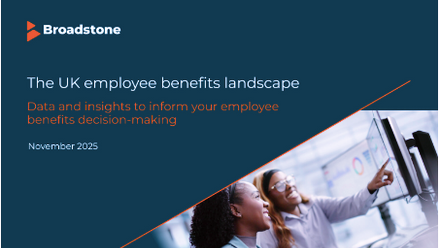5 questions to ask for getting best value out of your group risk spend
Group risk protection policies (employer-sponsored life assurance, income protection and critical illness) are potentially some of the most highly-valued and cost effective, but employers don’t always make the most of them, so try asking the following questions:

1. Do you know what you have bought?
If you already provide these benefits, group risk policy documents are legal instruments so make sure you understand the terminology and how best to use your purchase – and especially where these protection benefits should integrate into your absence, attendance and health and wellbeing programmes. Your adviser and provider are on hand to help with this and make sure that you get the most out of your purchase and the services on offer.
2. Do your employees know what they have?
Group risk benefits play a significant role in protecting employees and their families from the financial devastation that illness, disability, accident or death can bring and are some of the most cost-effective benefits an employer can offer.
They enable a business to reinforce its position as a caring employer by throwing a financial lifeline to people when they need it most. It therefore makes sense for businesses to ensure that employees know and understand what is in place for them, as financial peace of mind can generate much goodwill and improve engagement. This can be wasted if people are kept in the dark on what you have made available to help them.
3. Do you know what comes along with your group risk policies?
Group risk providers have worked hard to deliver value and to offer supportive services that complement their group risk insurance protection. Each provider will offer a blend of different services but, generally, group risk products offer up support such as employee assistance programmes, HR and legal advice, second medical opinion services, online health assessments, mental health first aid training, absence management, occupational rehabilitation and fast-track access to counselling and physiotherapy.
4. Do you use the extra services?
Group risk support services can be extremely effective in keeping people in work, giving them the help they need to make life changes and supporting them back to work.
These services can be accessed by HR staff, line managers and employees alike. Getting the most out of them means using them as they are intended – every day – and communicating them effectively.
What is more, efficient use of group risk extra support frees up both money and time to use elsewhere. Added value group risk services are often available to the entire workforce and not just the insured population, so looking at the overall value of the package rather than just focussing on the premium is key to effective use of budget.
5. Do you engage with your provider and adviser?
Nothing works well in isolation so take the time to develop a tripartite relationship with your adviser and provider, where roles and trigger points are mapped out and communication strategies can be developed together in order to gain maximum outcomes from interventions and support for staff.
Undoubtedly, those employers that are most engaged will get the most value.
This article is written by Katharine Moxham, spokesperson for Group Risk Development (GRiD)







